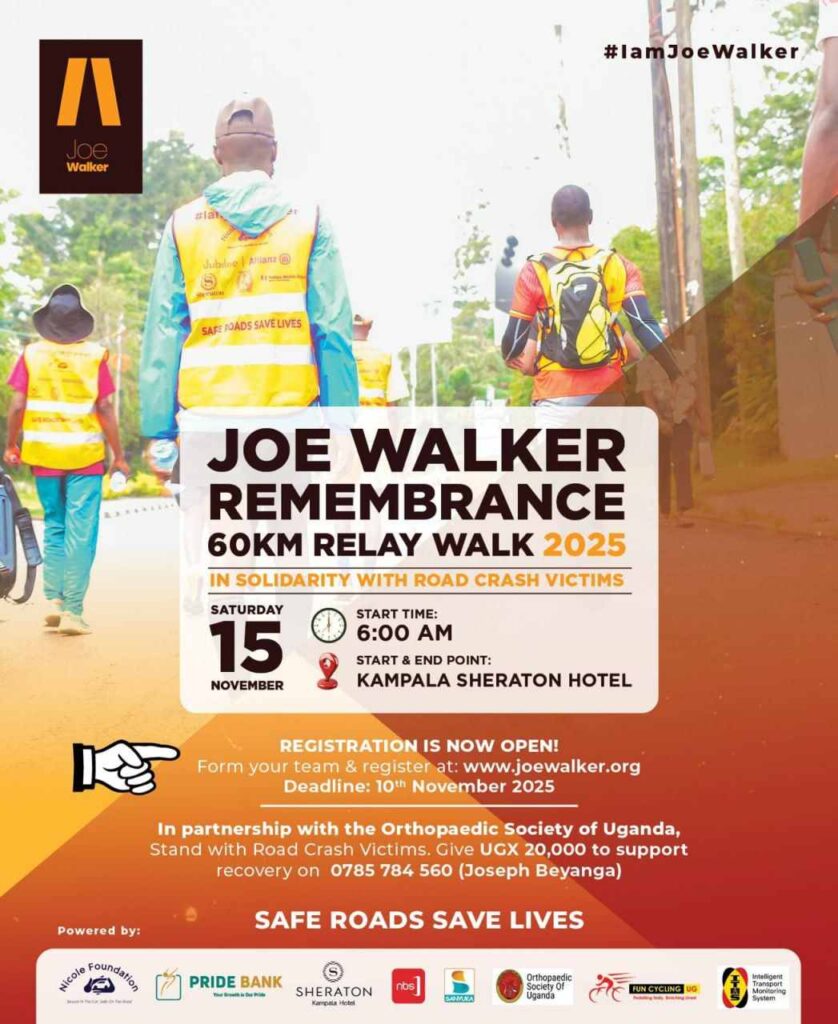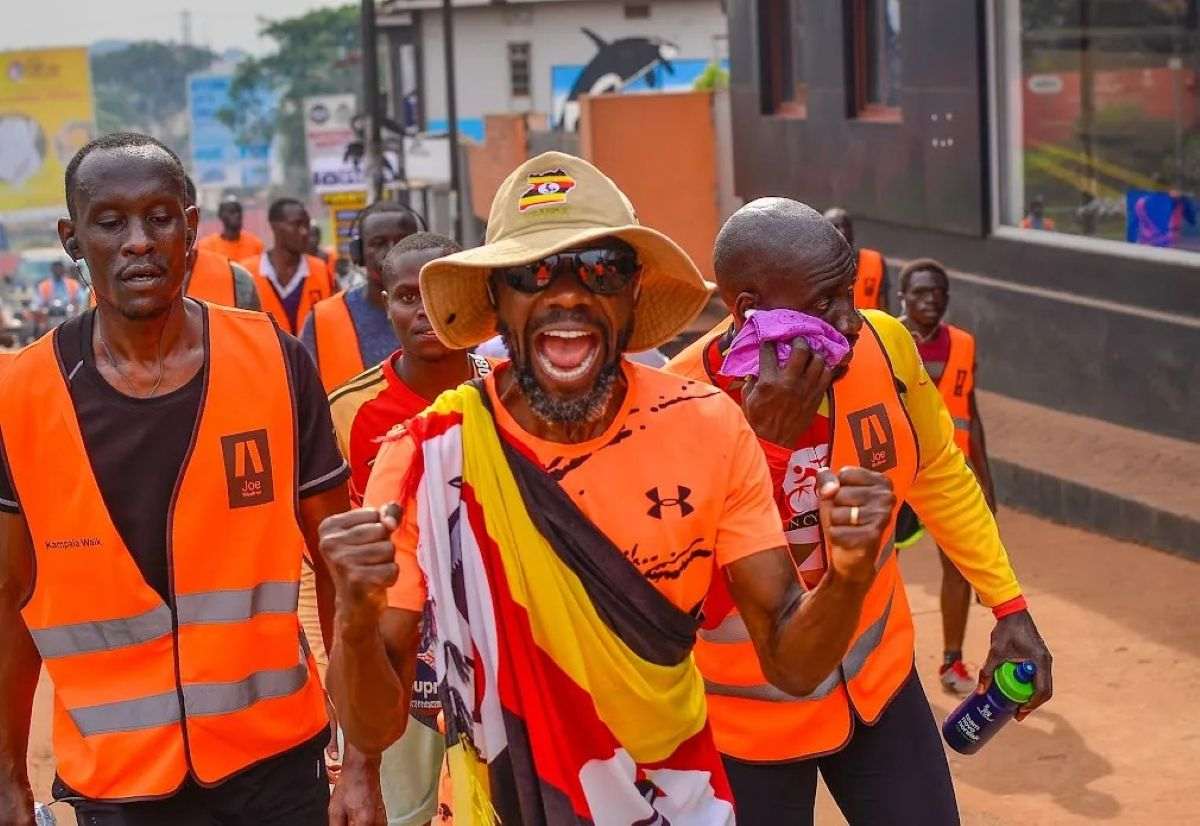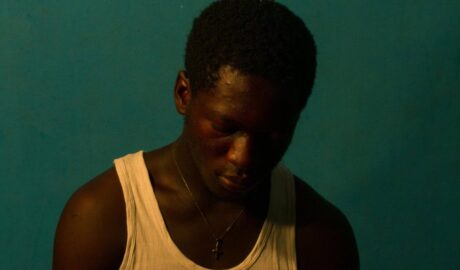In a nation where the hum of boda bodas and the roar of matatus/taxis defines daily life, a grim statistic casts a long shadow: every day, 14 Ugandans do not make it home. These aren’t just numbers-according to the latest Uganda Police Traffic Report, 2024 has already seen 5,144 people killed and 17,013 seriously injured in road accidents.
Behind every figure lies a face, a family shattered, a story brutally cut short. A child waiting for a parent who never returns. A breadwinner erased in an instant. Dreams derailed on pothole-riddled highways or chaotic urban streets.
I know this pain firsthand in September, a reckless driver on phone clipped my boda, hurling me to the ground and breaking three ribs; weeks of agony in hospital reminded me how one split-second lapse can shatter a life, fueling my resolve to ensure no family endures what mine narrowly escaped.
The human cost caused by road accidents is immeasurable
These numbers, released by the Uganda Police, underscore a public health crisis that rivals any outbreak. Road traffic accidents have become Uganda’s leading cause of unnatural death, surpassing diseases in their toll on the young and productive. In urban centers like Kampala, reckless overtaking and speeding claim lives amid gridlocked traffic. Rural roads, often unpaved and poorly lit, turn deadly with overloaded vehicles and stray animals.
Alcohol-impaired driving, lack of seatbelt enforcement, and substandard vehicle maintenance compound the risks. The World Health Organization estimates that low and middle income countries like Uganda bear 93% of global road fatalities, despite having only 60% of the world’s vehicles. Here, the disparity is stark, a preventable tragedy unfolding daily.
The human cost is immeasurable. Imagine a breadwinner killed en route to market, leaving orphans to fend for themselves. Or a student pedestrian struck down while crossing to school, robbing a community of future potential. Families grapple with not just grief but financial ruin from medical bills and lost income.
The 17,013 serious injuries reported translate to lifelong disabilities, overwhelming an already strained healthcare system. Police data reveals that pedestrians and motorcyclists account for over 60% of fatalities, highlighting vulnerabilities in a transport ecosystem dominated by two-wheelers. Enforcement gaps persist: only a fraction of drivers are licensed properly, and corruption in traffic policing erodes trust.
The Joe Walker Remembrance Walk hopes to drive awareness and change the narrative
Yet amid this despair, a beacon of hope emerges on November 15, activist and philanthropist, Joe Walker will embark on a grueling 60km Remembrance Walk. Starting at dawn, the trek will weave through key routes symbolizing the perilous paths many Ugandans navigate daily. It’s not just a physical challenge; it’s a poignant tribute to victims and a rallying cry for safer roads.
This isn’t Walker’s first stride for change. Known for his “Joe Walker” initiatives, he has previously tackled social issues through endurance challenges, raising awareness and funds. The 60km distance symbolizes the average daily death toll multiplied, a poignant reminder of the scale. Starting from Kampala Sheraton Hotel in Kampala, the walk will traverse high-risk routes, pausing at crash hotspots for tributes. Participants are encouraged to form teams, fostering community solidarity.
The call to action is clear: register for Joe Walker Rememberance Walk 2025 and join with colleagues, friends, or family. Corporate teams, schools, and NGOs who are rallying, turning the event into a national movement. Beyond remembrance, Walker advocates for concrete measures, stricter speed limits, mandatory helmet laws, improved road infrastructure, and public education campaigns. Partnerships with police and the Ministry of Works and Transport could amplify impact, pushing for vehicle inspections and anti-drunk driving checkpoints.

As Uganda strives for Vision 2040 development goals, safer roads are non-negotiable. Investments in public transport, like the upcoming Bus Rapid Transit system, could reduce reliance on dangerous alternatives. Technology, such as speed governors and dashcams, offers promise if enforced.
The Joe Walker Remembrance Walk isn’t just a march; it’s a clarion call. By walking 60km, participants honor the 5,144 killed and vow to prevent the next 14. In a land of resilient people, this could spark the change needed to ensure every Ugandan returns home safely. Join the walk because silence in the face of such loss is complicity.
Check out: 4 Injuries That Don’t Always Show Up Immediately When You’re in a Car Accident



